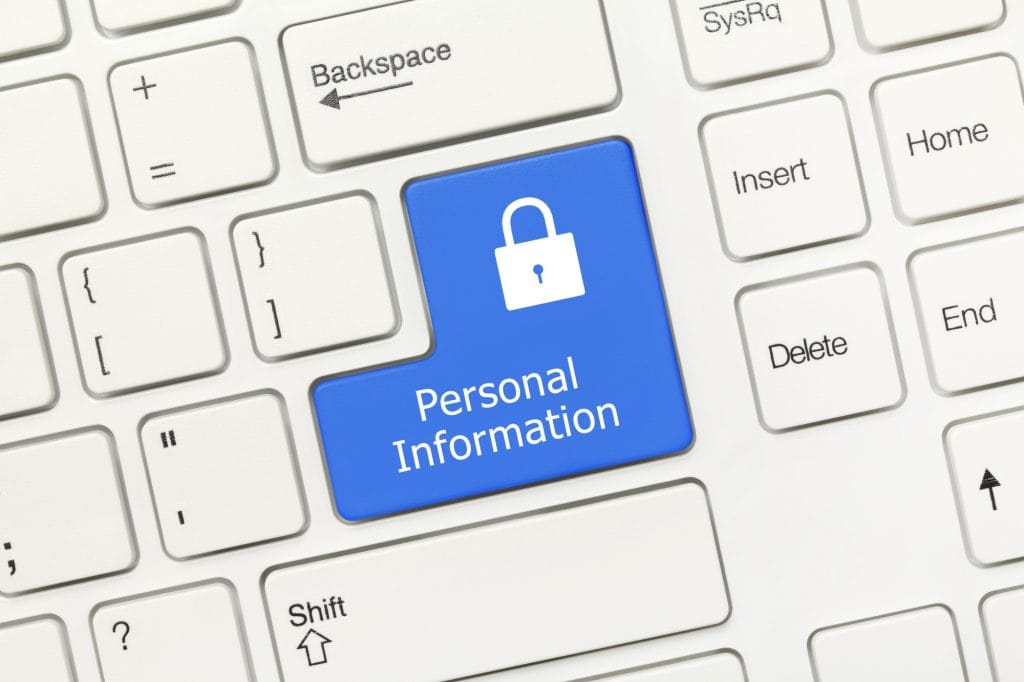Do you love shopping online? Do you often use your credit card for your payments? Then protecting personal information should be one of your priorities.
As the majority of our transactions often involve the internet, exposure to hacking is now one of the biggest challenges businesses and individuals are facing today. Businesses lose an average of $200,000 to cyber-attacks. Sadly, some businesses end up closing shop as they couldn’t take the impact on their finances.
Meanwhile, individuals also lose their hard-earned money after compromising their personal information online. Hence, the question: How can you protect your personal information from cyber threats?
Continue reading below for seven tips that help secure your personal data.
1. Use Strong Passwords
One of the most common yet valuable tips for protecting personal information and online data is to use strong passwords. This covers all the passwords you use across all devices, apps, and websites you visit.
Moreover, you need to double your password strength for your extra-sensitive accounts like your mobile banking apps and others that give direct access to your money. For such cases, consider using two-factor authentication. It implements another method on top of your password, like a code they send on your mobile device.
Meanwhile, when deciding on your passwords, make sure not to keep things simple. Don’t use your birthday or the date of your wedding anniversary. These things are quite easy for hackers to figure out.
Instead, use combinations of letters, numbers, and symbols. Also, combine upper and lower-case letters for your passwords. Never use the same password for every online account.
Additionally, consider changing your passwords every quarter. Never share your passwords with anyone, unless it is a matter of life and death.
2. Revisit the Platforms You Use
What kind of platforms do you often use? How can you protect the personal information legitimate organizations gather? Even if you’re dealing with your healthcare provider, hackers will try to steal your personal health information.
In 2020, the healthcare industry saw a 25% increase in data breaches. To break this down further, there was an average of 176 breaches per day. Those breaches involved 500 or more healthcare records.
Thus, you need to make sure the platform you’re using is secure. For example, to check on the safety of your telemedicine platform, connect with your provider and confirm if their platform is compliant with the HIPAA risk assessment requirements. Healthcare providers must abide by these rules to protect their patients’ information.
In case you’re visiting a merchant’s website, check if the site is secure. One of the first things to look at is the site’s URL. It should start with an “https” since the “s” stands for “secure.”
If it doesn’t, don’t risk entering your payment details. Also, examine the content of the site. Does it come with a lot of typographical errors? Is there any visible security information or symbol?
Without these security indicators, avoid the site and find another merchant. Be prudent in sharing and monitoring your geo-location data or “location services.” It’s the location data you give to apps using Wi-Fi, GPS, Bluetooth, or cellular data to track your location.
3. Mind What You Click and Open
When opening emails, be mindful of clicking links and attachments. One of the most common strategies of hackers is sending out phishing emails. These emails pretend they come from your bank, tax service, or telecom operator.
At first glance, these emails look harmless. However, the moment you click the links or attachments, it allows cybercriminals to steal your personal information and other private data. To avoid falling for this cyber-attack, be vigilant with the small details.
Check the email address and compare it with the official one. If it looks different or comes with typographical errors, the email is likely spam.
4. Invest in Additional Protection
Protecting personal information especially in these extraordinary times is an investment. Thus, consider spending on additional protection such as a good internet security package.
Go for a package that comes from a trusted security software brand. Don’t hesitate to spend on anti-virus software, anti-spyware software, and a firewall. These security products will give hackers a hard time breaching through your systems.
5. Be Wise on Social Media
When using social media, be careful with your posts. Avoid oversharing on Facebook, Instagram, and other platforms.
For starters, check your privacy settings and see who gets to see your posts. If all your posts are “public,” considering limiting them to your friends.
Be careful about posting your personal details. It can be your birthday, your wedding anniversary, or your location. This information may seem harmless in the eyes of a normal person.
However, for cybercriminals, these are keys to their success.
6. Limit Your Credit Card Data
When shopping online, practice the habit of limiting your stored credit card data. When you buy online, some merchants and apps save your credit card information. It allows them to process your orders faster the next time you place an order.
Though it eases your transactions, it also increases the risk of becoming a victim of fraud. Thus, choose the websites where you store your data. Alternatively, use Google Wallet or PayPal when paying for your purchases.
7. Update and Back-up
Last but not least, develop the habit of updating your computers and mobile devices. Do the same with your security software. Updating will keep you a step ahead of cybercriminals.
Also, always back up your data. This is crucial in case malware or ransomware infects your computer.
Go Beyond Protecting Personal Information
Now that you know how to protect your private information, you’ll have more confidence in your online transactions. You can also keep hackers at bay and protect your devices and resources. However, protecting personal information is not the only thing you should learn about data management.
Learn more by reading our other articles. We discuss topics that will help you manage your data, equipment, and gadgets.







